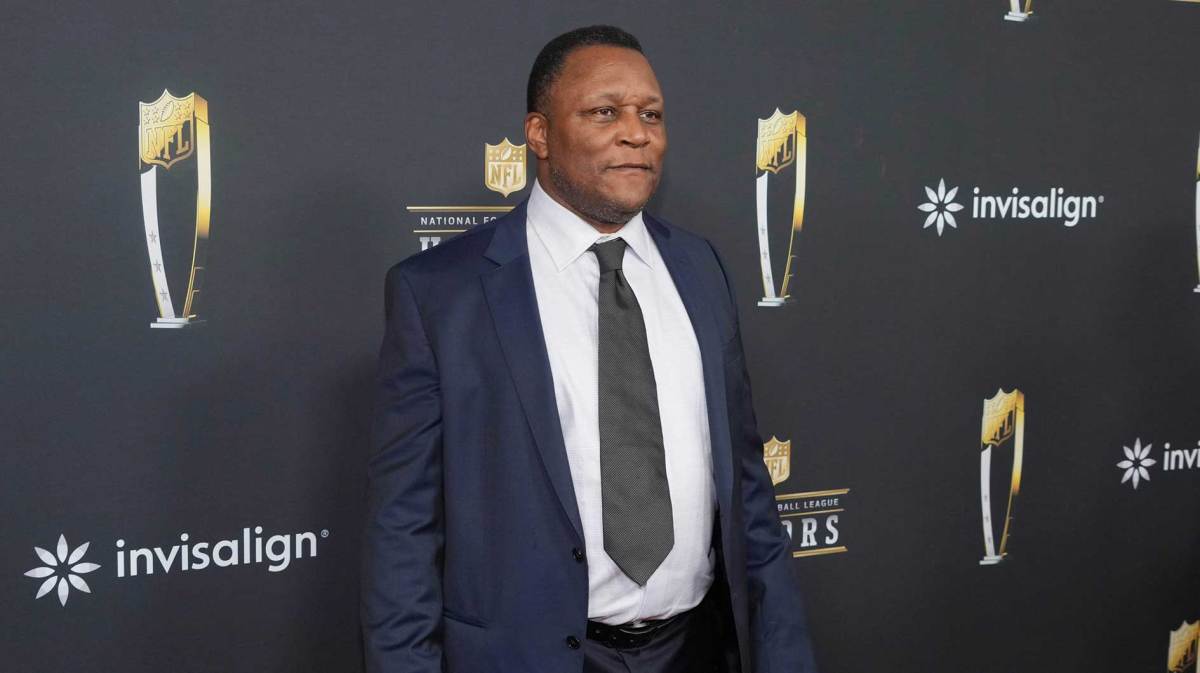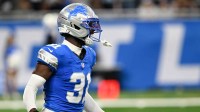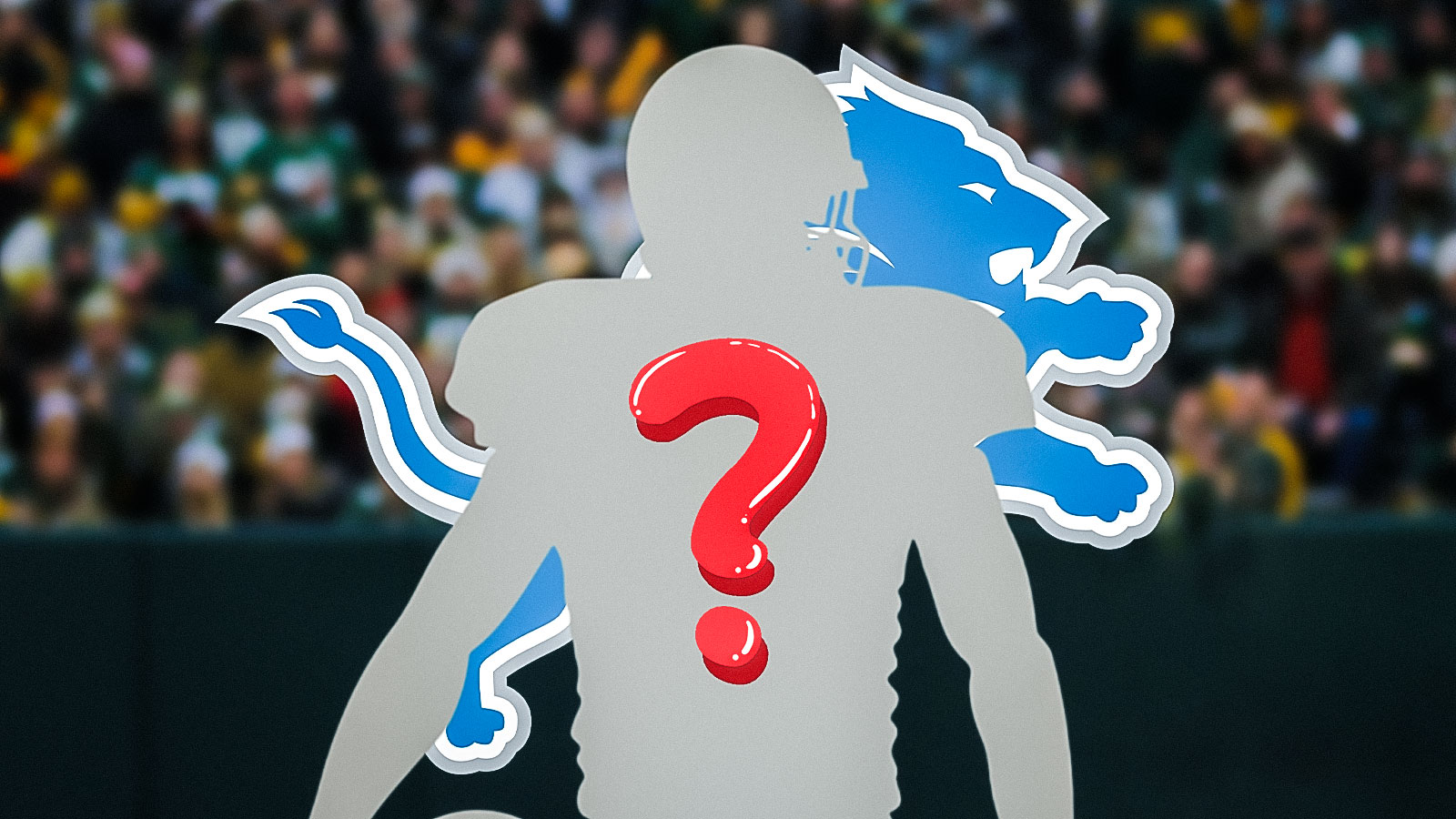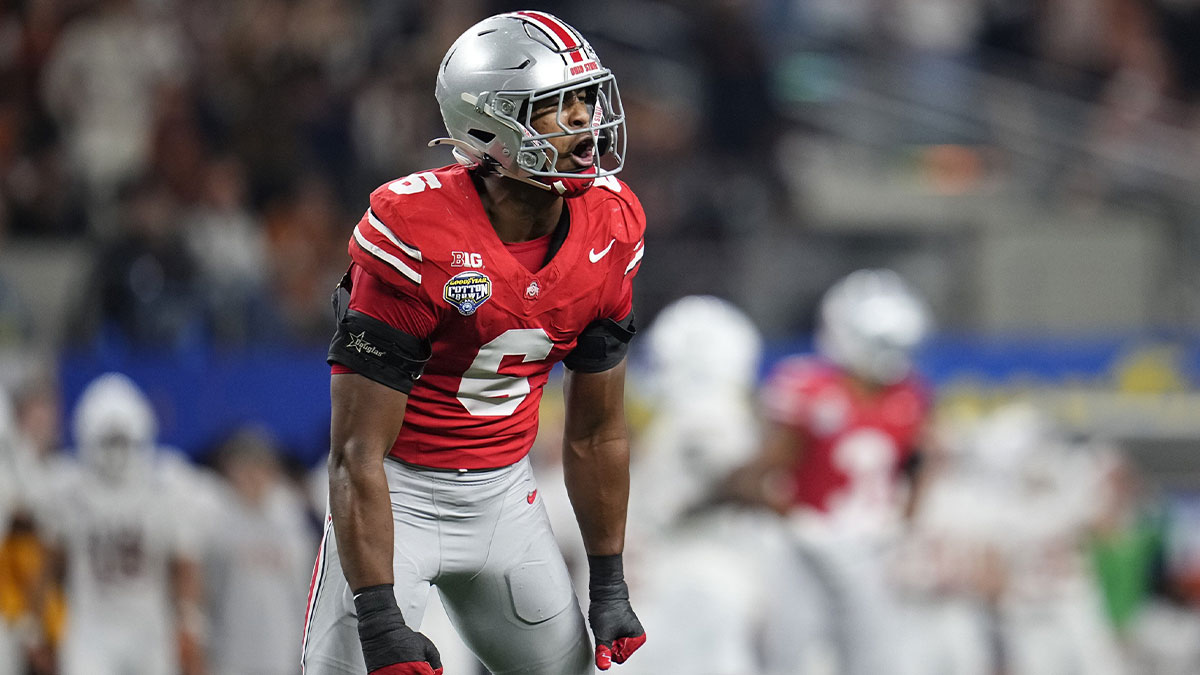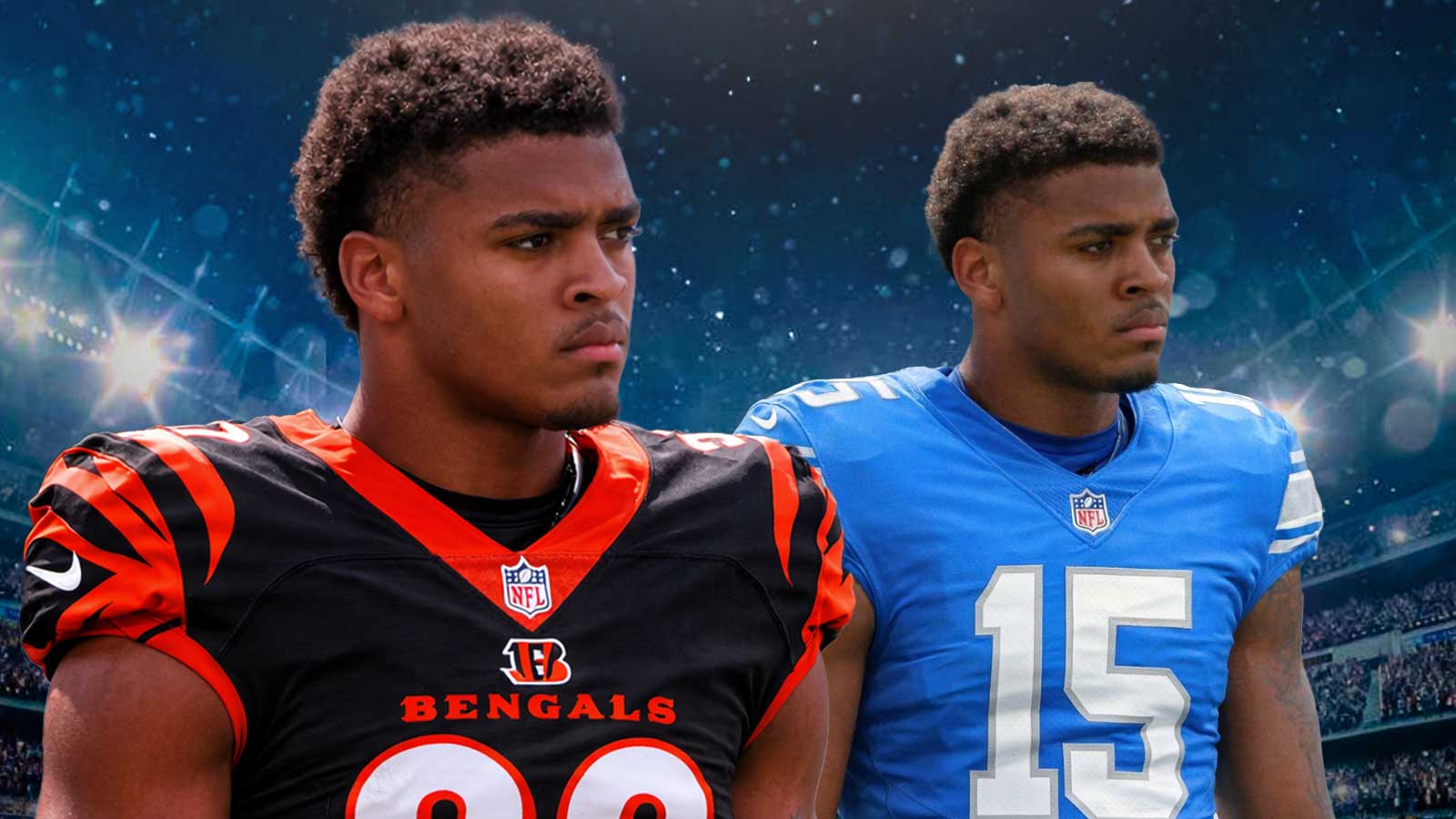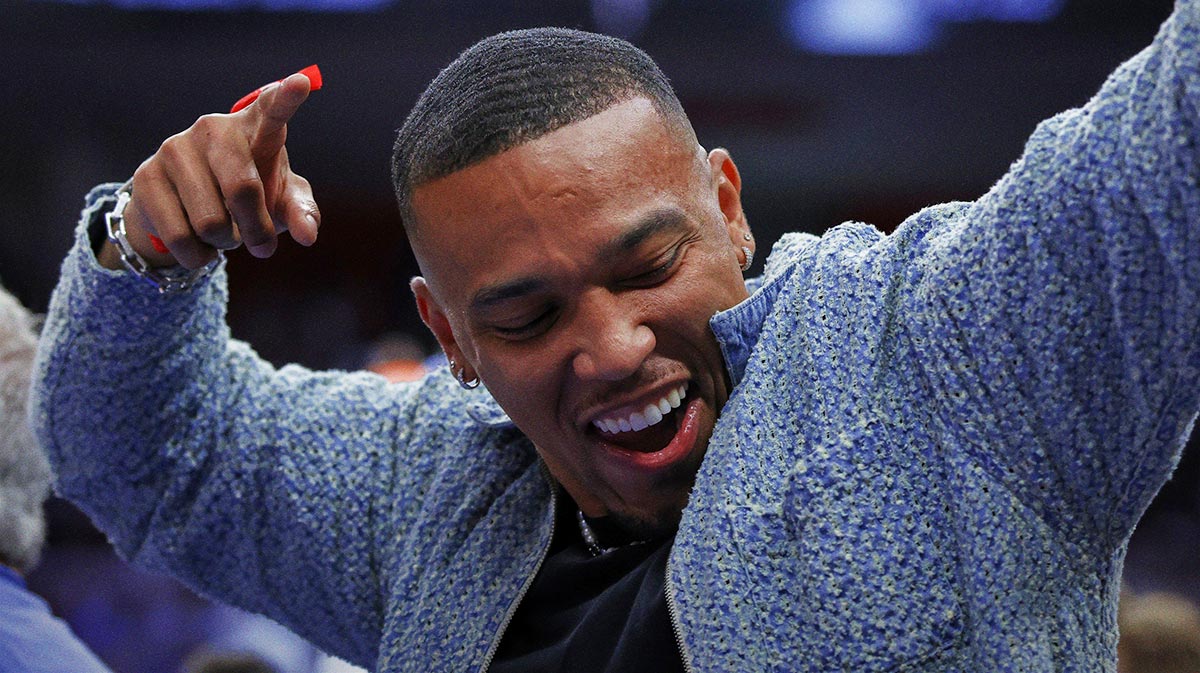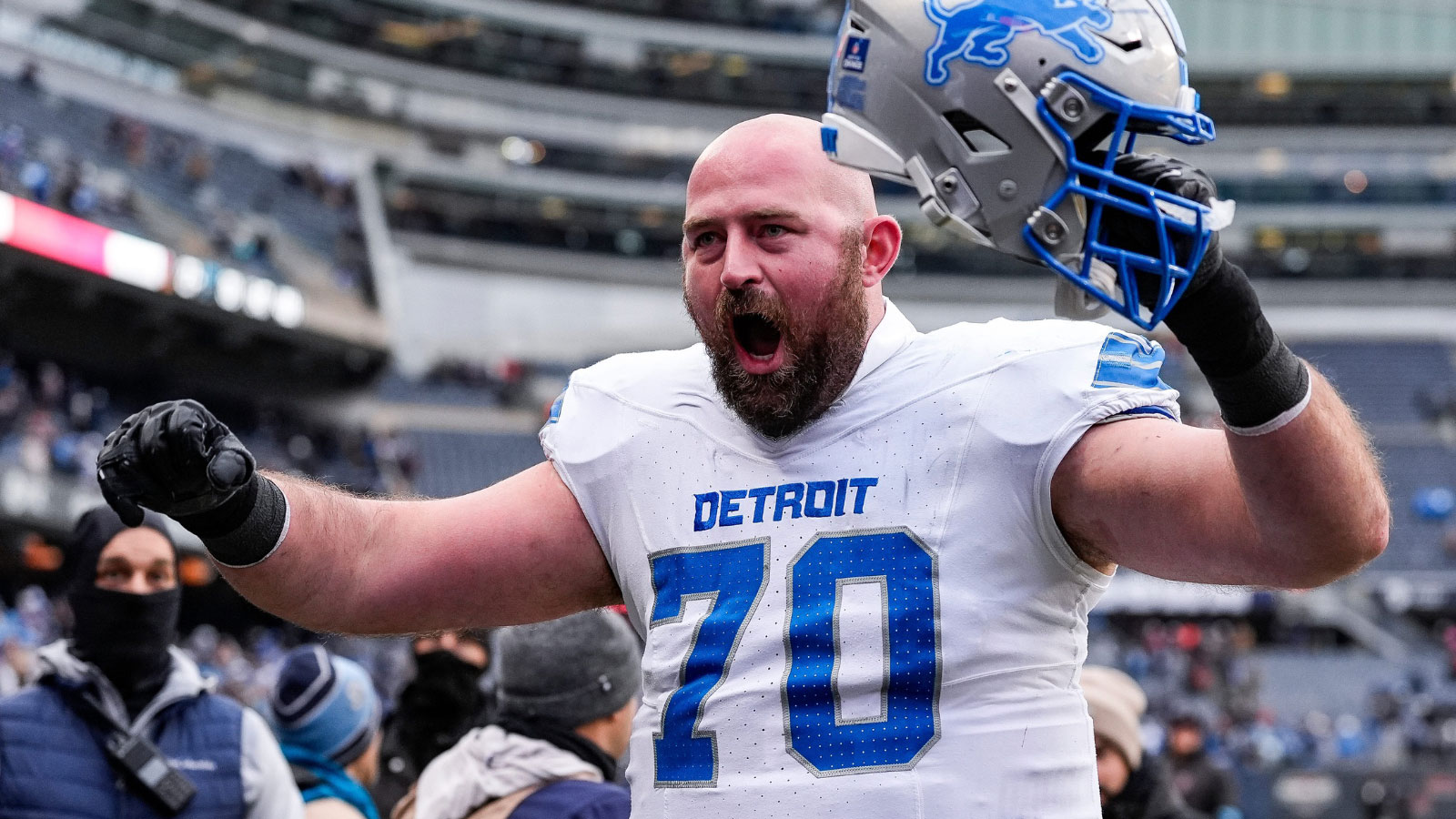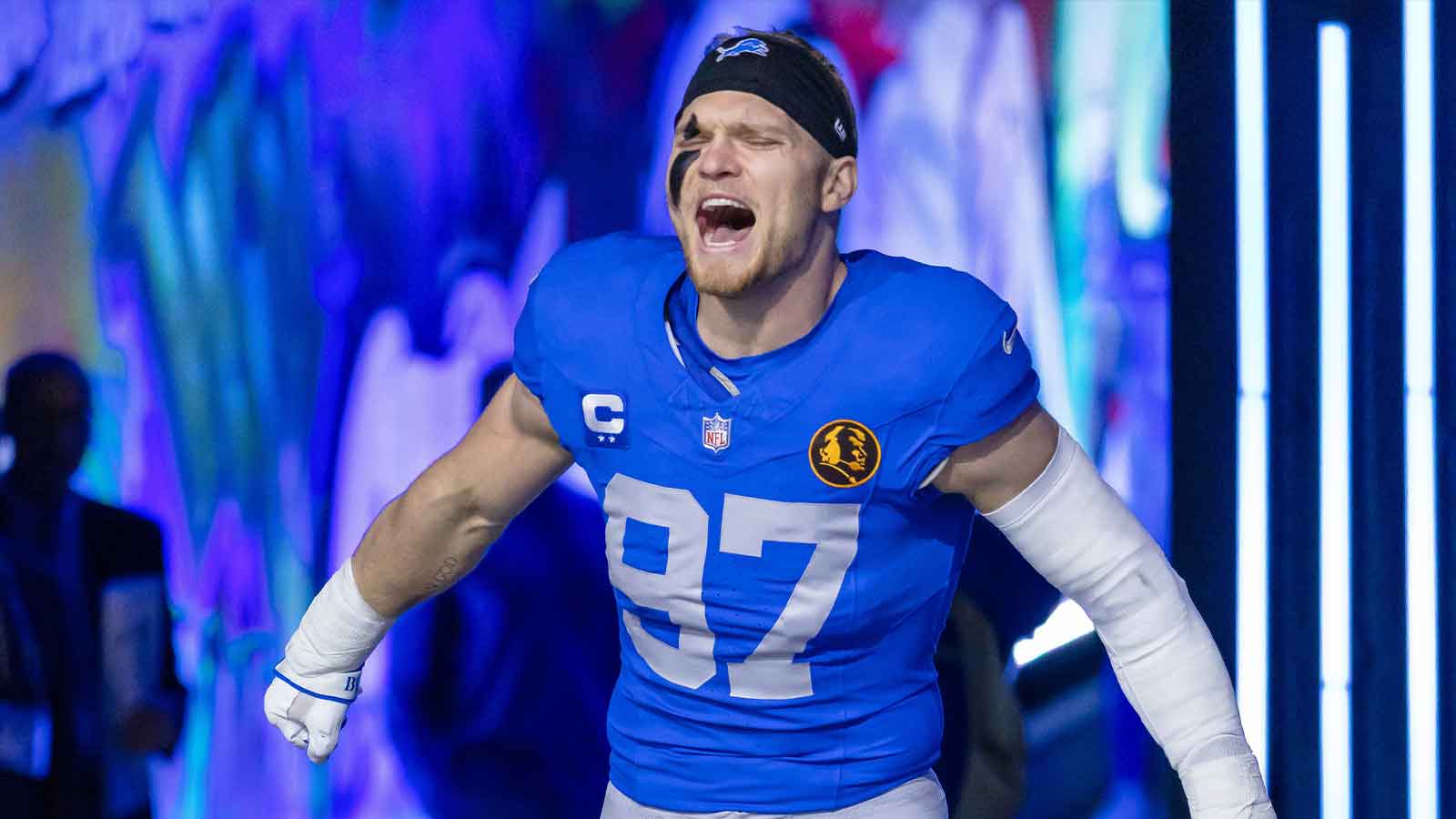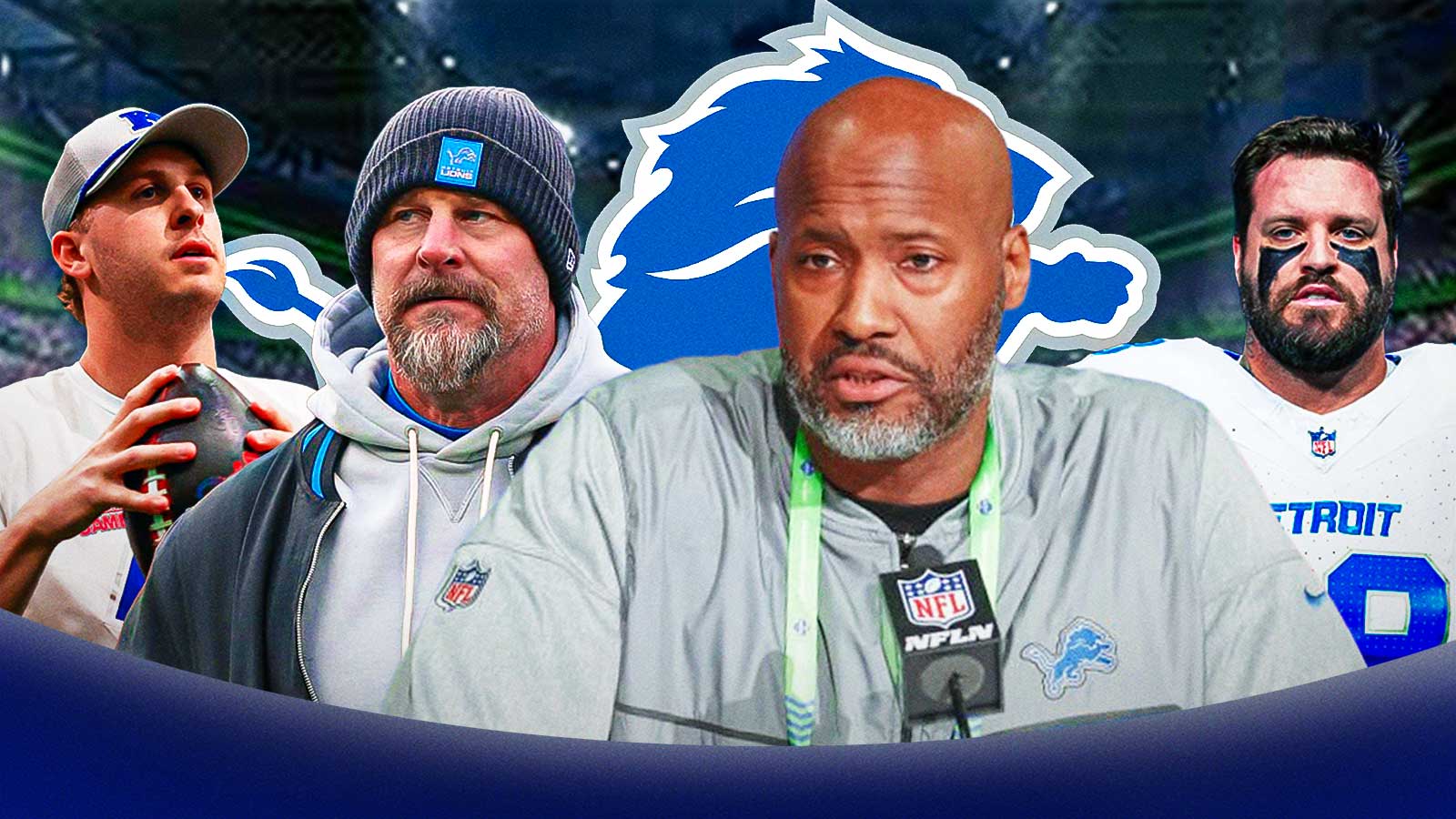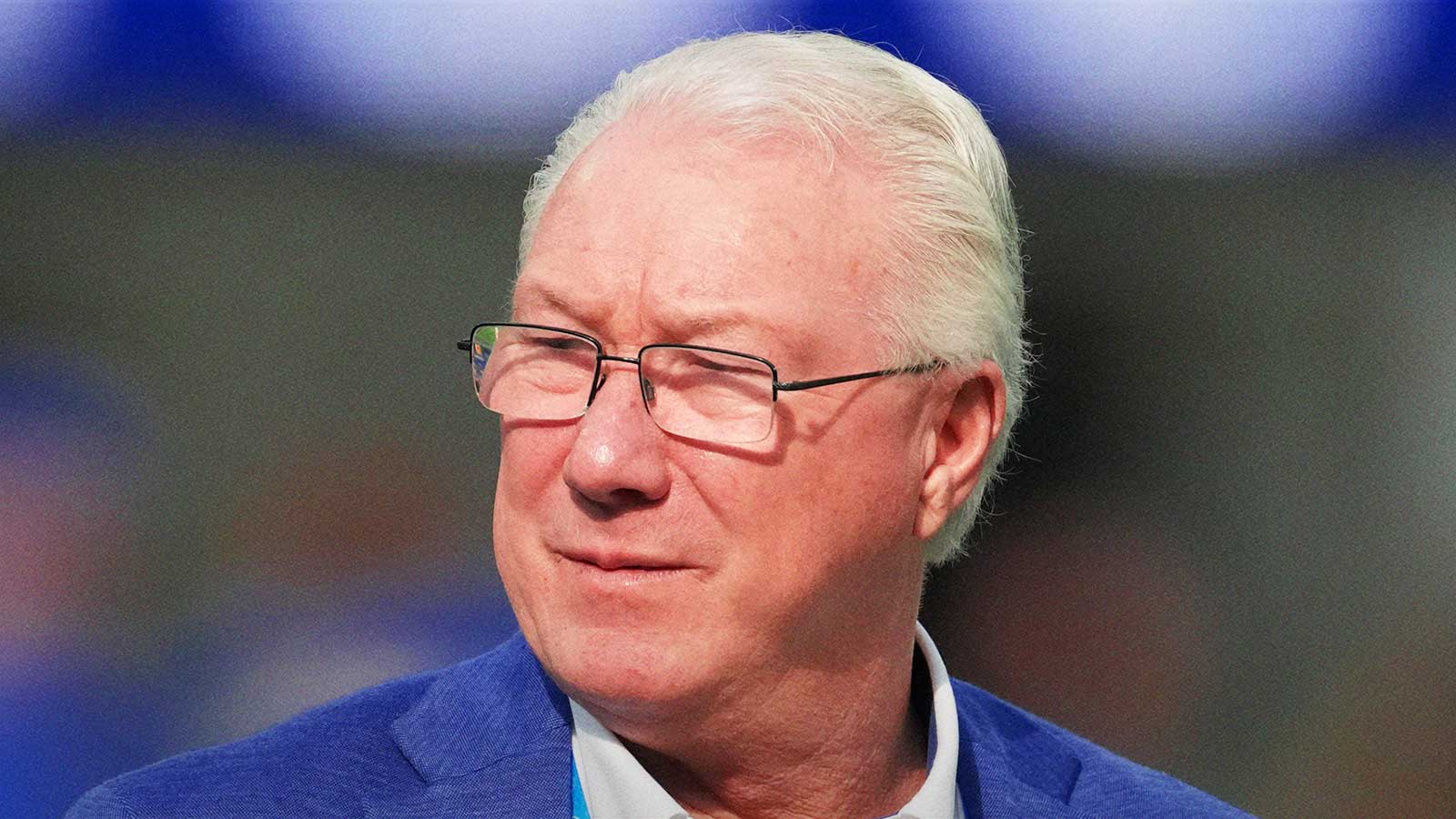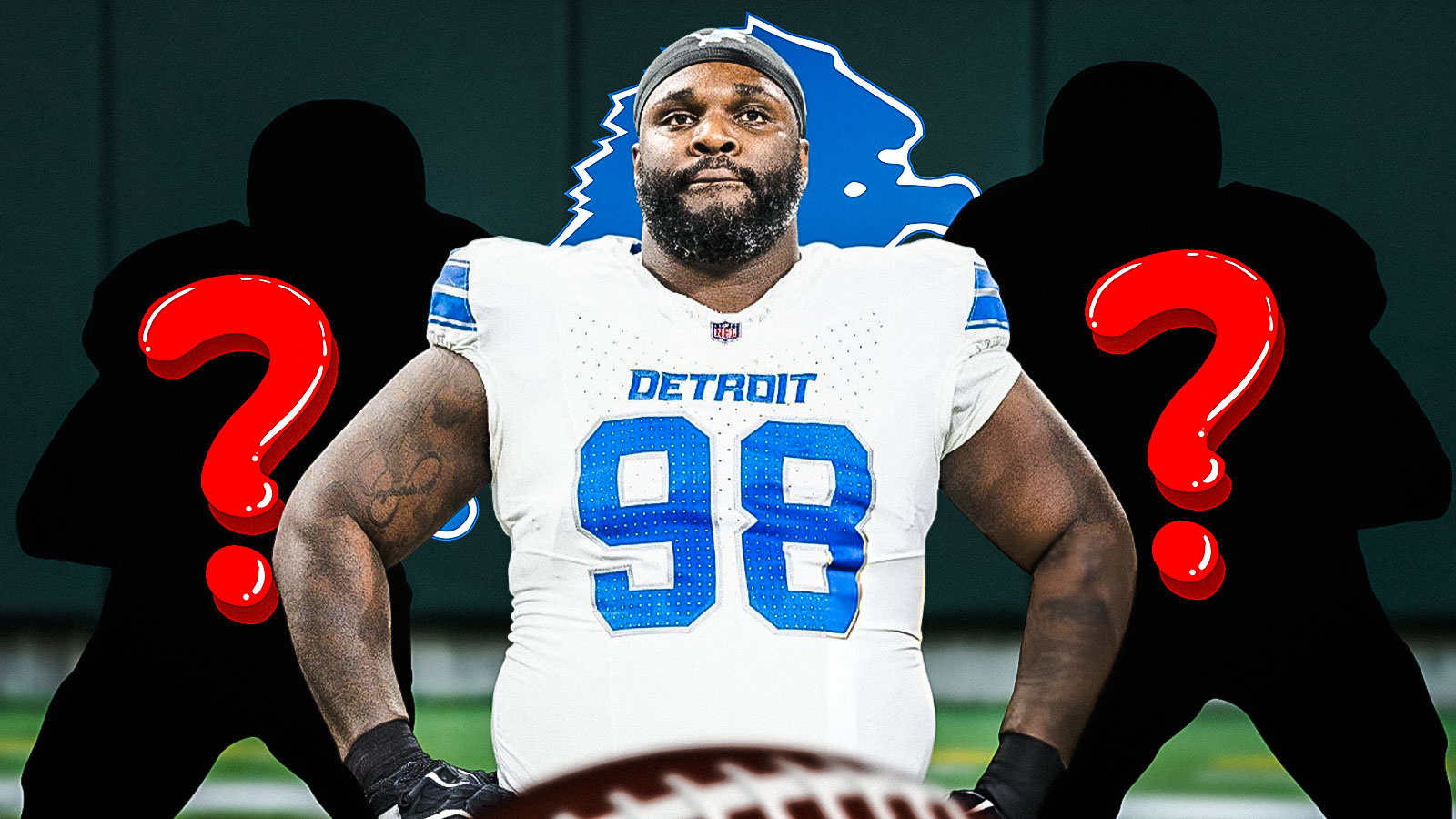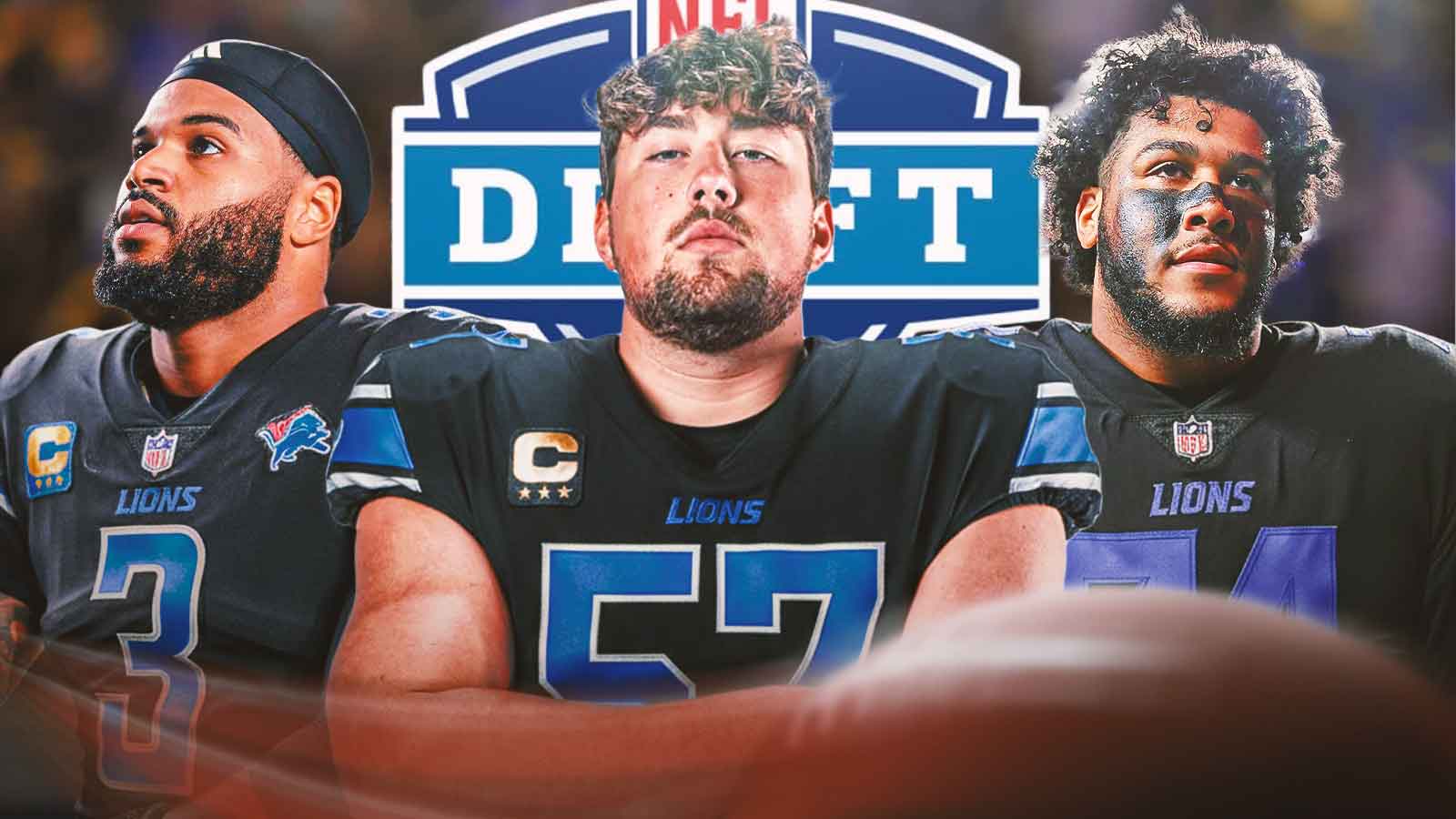Pro Football Hall of Famer Barry Sanders is one of the greatest running backs ever, but his legacy doesn't stop there. The four-time NFL rushing yards leader had a heart attack on Father's Day in 2024, a sobering reminder of life's fragility, even for sports titans.
Sanders, a father of four, didn't take the experience lightly. The Detroit Lions' 75th Anniversary Team member not only made healthy lifestyle changes, but he also became a heart health advocate. He showed off his knowledge in A&E's new documentary The Making of a Heart Attack, produced by biopharmaceutical company Amgen.
The documentary, which is headed to the Cannes Lions International Film Festival in June, focuses on understanding risk factors, especially LDL-C, or “bad” cholesterol. Viewers can watch on A&E or AttackHeartDisease.com/Documentary.
Sanders spoke to ClutchPoints on Thursday about his health scare, the documentary, and how the NFL's current player safety protocols compare to when he played.
Barry Sanders Q&A

Joshua Valdez: How did your heart attack last year change your perspective on your life?
Barry Sanders: I think it just made me stop and reflect and understand where I was, and that I needed to do certain things differently. It was a real education. I'm fortunate that I was able to run to the doctors that I did and have them point me in the right direction as far as lowering my bad cholesterol and whatever lifestyle changes I needed to make. You know, getting on this side of it, I guess. It's been a year now, just about. A lot of follow-ups with doctors and conversations. It just so happened that in that process, I learned that Amgen was doing this documentary, The Making of a Heart Attack, and I was able to be a part of that.
So in the process of me sort of healing and recovering and learning that Amgen was doing this project, I interacted with and met other individuals who dealt with heart attack and stroke. So yeah, relatively speaking, it's been a pretty important, informative, and encouraging process to meet people who are heart health advocates and have foundations that bring awareness to people. Turning the negative into a positive…
Joshua Valdez: What lifestyle changes did you have to make?
Well, just following doctors' advice, meeting with them, understanding what it means to have bad cholesterol and high LDL-C levels. Some people have hereditary risk factors; it's not something they're doing wrong. You don't have to be extremely overweight, you don't have to be in an older demographic. For me…I'm doing a little more walking, probably not eating as much. Things like that have all helped me.
Joshua Valdez: What other misconceptions have you noticed about heart disease?
Well, the only way to know [if you have it] is by talking to your doctor and testing for LDL-C. Also, what's surprised me is that some of these people are in their 30s. Sitting here in my mid-50s, 30 seems really, really young. That's why it's important to have those conversations with your doctor. But to answer your question, I would say the fact that it can happen that way, and it can be passed down from parent to child, was pretty surprising.
Joshua Valdez: What was it like to make this documentary? Have you ever done that before? How did it change your perspective on the issue?
Barry Sanders: I made a documentary before, but nothing quite like this, where I'm really sharing with other individuals in that way. I think it's very powerful, very informative. It really does a good and important job of explaining that it doesn't really matter what your demographic is. It can strike anywhere. If it's something that's hereditary, you're gonna wanna know about that pretty early, as well as other risk factors.
Sharing about something like this is powerful; it just makes you reflect. It's been very educational. It's encouraging, even when you're talking about heart disease and strokes, it's encouraging to see what some people have done on the other side of these incidents, and to see how motivated they are, and how strong they are with advocacy and heart health awareness. Hopefully, people will go to AttackHeartDisease.com/Test, find out more about it, and have those conversations with their doctor about being tested for bad cholesterol or LDL-C levels.
Joshua Valdez: Speaking of sharing the experience, have you gotten to talk to your peers in the NFL community about this?
Barry Sanders: I've talked to a few guys about it. I'm just kind of starting on that journey as far as advocacy work. I'm hoping that many people will watch the documentary, including those like me who are retired NFL players, or current players, or whatever the case may be. Everyone has someone who's connected with or has been touched by heart disease or stroke.
Joshua Valdez: Staying on the NFL, what do you think about its general player safety/health initiatives?
Barry Sanders: Oh yeah, it's been greatly improved over the last few years. Whether you're talking about on-field stuff with certain things you can and can't do, like roughing the passer or lowering your head. There's also the equipment, you see all the new helmets that have player safety in mind. The number of days you can practice, two-a-days aren't the same. There are a number of things that the NFL has done to make the game safer for the players. The way they deal with concussions and head injuries…The game is certainly safer today than it has been, and I know they're continuing to look for ways to make it safer.
Joshua Valdez: Do you feel that the league is more proactive about player health today than when you were playing?
Barry Sanders: Oh yeah, there's very little comparison from when I played. When you look at how proactive they are now with the health of players, it's not even close. We have to applaud the league for what they've done. I know that great care is taken to always look at ways to make the game safer…All the things on and off the field, practice, and in-game that they've done to make it safer. They can certainly be proud of that, and as a fan and former player, I respect it…You look at how popular the game is, the product on the field, it's still the most popular game out there.

